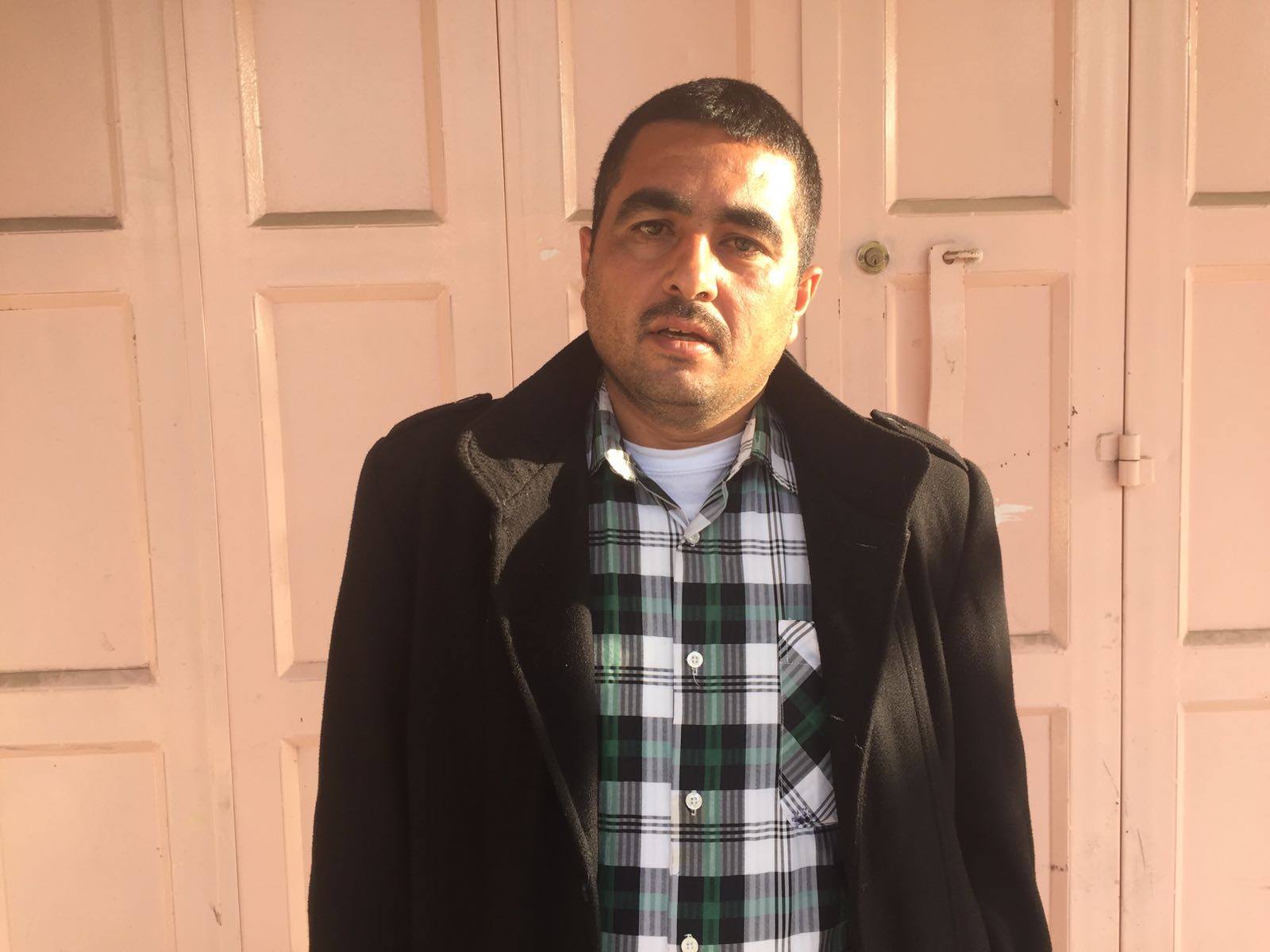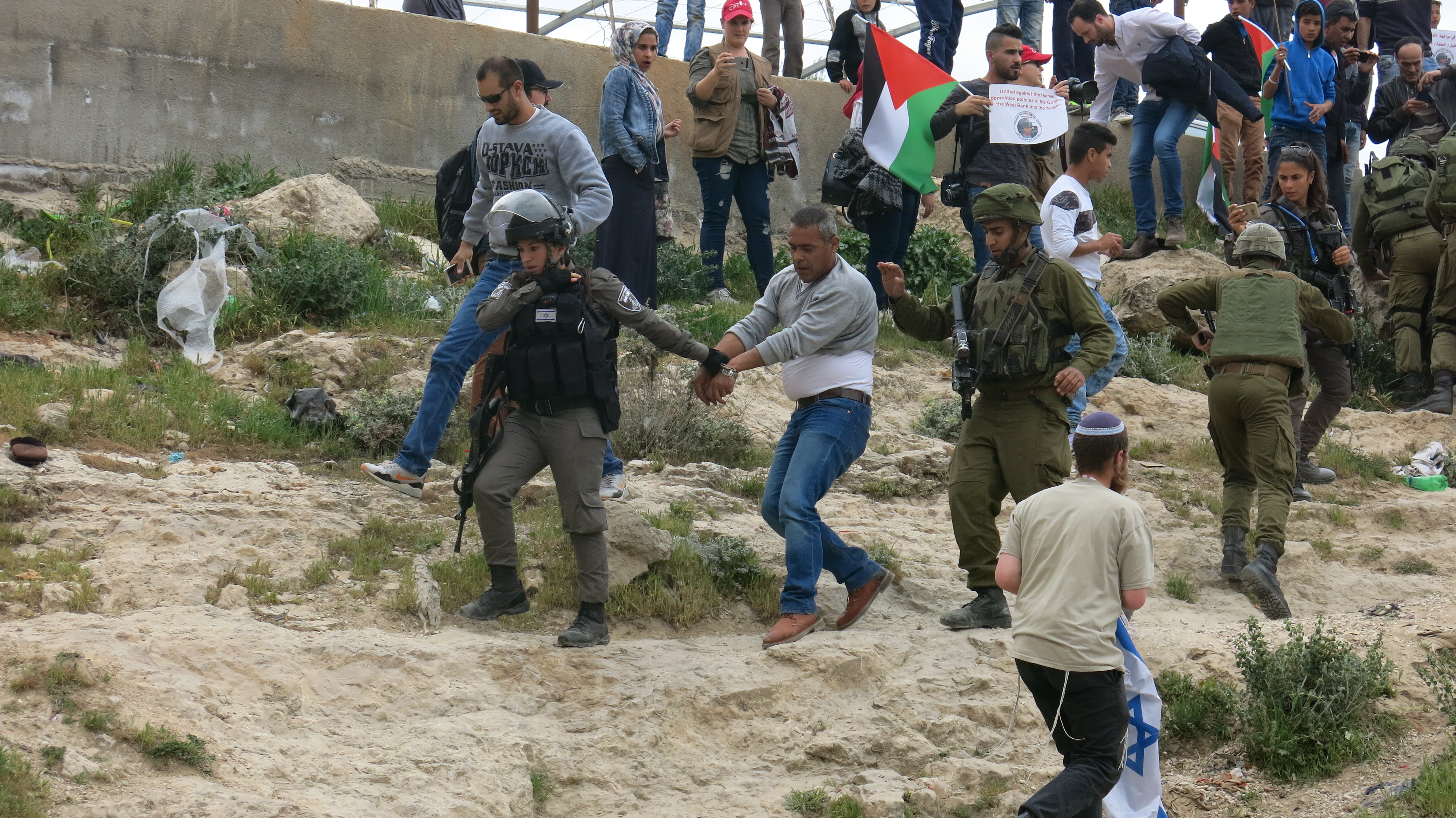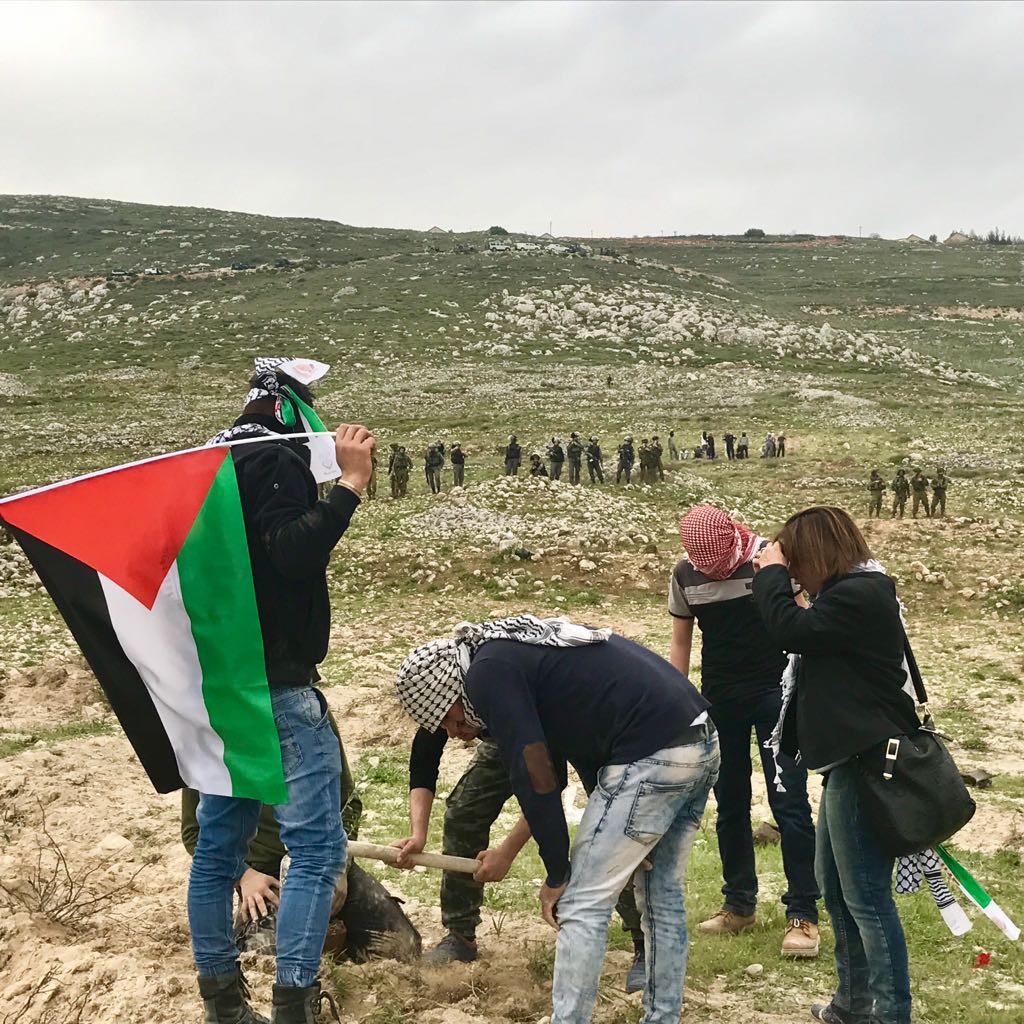Tag: Land Day
-
Beatings, theft, and humiliation: Dismantle the Ghetto activist speaks of his ordeal following arrest at Land Day demonstrations
15th April 2017 | International Solidarity Movement, al-Khalil team | Hebron, occupied Palestine Last week, amidst a slew of arrests by Israeli forces and subsequent court hearings, ISM activists had the opportunity to meet with Badee Dwaik; one of the four men arrested during the Land Day demonstrations in occupied al-Khalil. Badee, a seasoned activist…
-
URGENT ACTION: Four Palestinian Human Rights Defenders arrested facing military trial
1st April 2017 | International Solidarity Movement, al-Khalil team | Hebron, occupied Palestine The four human rights activists arrested three days ago on Thursday 30th March on a peaceful Land Day protest action now face the Israeli military court at Ofer tomorrow, 2nd April. They are charged with participating in an illegal demonstration and being…
-
Madama village marks Land Day 2017 under heavy military violence
31st March 2017 | International Solidarity Movement, Ramallah team | Madama, occupied Palestine Thursday the 30th of March was Land Day, a day in which Palestinians and their supporters commemorate the loss of huge amounts of land, stolen by the Zionist colonisers in 1976. In Madama village, in the Nablus area, around 300 Palestinian activists…



